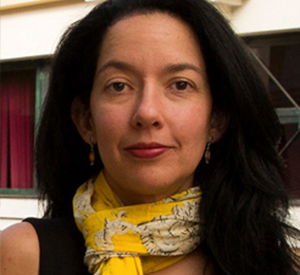"Gender and Politics in Latin America" - Public Lecture by Dr. Maria Amelia Viteri, Universidad San Francisco de Quito, Ecuador

Dr. Maria Amelia Viteri will speak about "Gender and Politics in Latin America" at St. Thomas University on November 20 at 4pm in McCain Hall, room 202.
This presentation will focus on conservative reaction to gender politics in Latin America.
"Social movements that have extended equality rights for women and LGBTQ have become the focus of transnational, anti-gender campaigns in parts of Latin America and Europe," she said.
"Focusing on what the Vatican labels "gender ideology", these movements have worked across borders to limit rights and police bodies, reinforcing heteronormativity. I will illustrate how some of these conservative movements continue eroding marginalized communities’ abilities to make their own choices about reproductive justice, equal marriage, environmental quality, among others, hand in hand with the successful strategies of resistance developed by a myriad of academic, feminist, LGBTQ, environmental, and indigenous organizations."
Maria Amelia Viteri hold a Ph.D. in Cultural Anthropology from American University, in Washington D.C., with a concentration on Race, Gender and Social Justice, an M.A. in Social Sciences with a concentration on Gender and Development, and a B.A. in Linguistics.
Her main areas of research have examined the intersections between race, ethnicity, class, gender, sexuality and migrant status and how these are closely related to structural violence and inequality in terms of numerous facets of experience including displacement, environmental degredation, nutrition, curricula, as well as in terms of rights for LGBTQ, women, migrants, indigenous, and children. Her work informs both academic knowledge and public policy. Her international work has focused mainly but not exclusively in Latin America, Central America, the Caribbean and the United States— which has allowed her to use a transnational and a comparative approach.
She has published extensively, in English and Spanish, for academic audiences, the media, as well as to inform public policy and international development efforts. As an engaged Anthropologist, she often makes public appearances related to her research.
Her first single-authored book entitled Desbordes: Translating Racial, Ethnic, Sexual and Gender Identities across the Americas ethnographically illustrates how migration status, gender, sexuality, class, race, ethnicity and nationality impact the lives of Latino communities in the U.S.A, El Salvador and Ecuador, particularly LGBT Latinos (2014, SUNY Press: New York). One of her most recent published books, Patterns of Violence Against Girls in Ecuador, maps and illustrates how gender-based-violence in Ecuador functions, through qualitative as well as quantitative research (2017, University of San Francisco Press and Plan International).